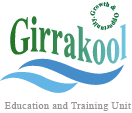24
OctoberIf You don't (Do)Thailand Rehab Centre Now, You will Hate Yourself Later
Introduction:
Alcohol withdrawal is a condition which takes place when people abruptly stop or dramatically reduce their liquor intake after extended periods of heavy-drinking. Its a complex and possibly life-threatening condition that affects thousands of people global. This report aims to provide a thorough breakdown of alcoholic beverages detachment, including its signs, treatment plans, and management strategies.
Signs and symptoms of Alcohol Withdrawal:
The onset and severity of liquor withdrawal signs differ among people, dependent on aspects such as the amount and period of alcohol consumption and your general health. Typical symptoms include tremors, anxiety, irritability, nausea, vomiting, insomnia, increased heartbeat, and sweating. In severe situations, people may go through hallucinations, seizures, or delirium tremens (DTs), a potentially fatal problem characterized by agitation, confusion, hallucinations, and fluctuating quantities of consciousness.
Treatments:
Whenever dealing with liquor detachment, it is vital to find medical assistance and help. The principal aim of trauma treatment thailand solutions are to properly handle withdrawal signs, prevent complications, and facilitate the transition to sobriety. Doctors can assess the extent of signs and figure out the correct degree of treatment. In mild instances, outpatient treatment may be administered, while worse situations may need hospitalization.
Medications widely used in liquor detachment therapy consist of benzodiazepines, that assist lower anxiety, relieve signs, and steer clear of seizures. Various other medicines particularly antipsychotics, anticonvulsants, and beta-blockers is utilized to handle specific symptoms or co-occurring circumstances. Also, nutritional vitamin supplements, especially thiamine (vitamin B1), in many cases are recommended to prevent or treat prospective inadequacies related to exorbitant drinking.
Management Tips:
Besides health treatments, different strategies can be employed to handle liquor detachment efficiently.
1. Supportive Care: Providing a supporting environment encourages a sense of security and convenience. This includes making sure proper nutrition, moisture, and remainder, and keeping track of vital signs and handling any health problems which could occur during detachment.
2. Psychotherapy: Pursuing mental health support, such as for example counseling or psychotherapy, can play a crucial role in addressing fundamental psychological or mental issues that subscribe to alcoholic beverages dependency. These interventions help people develop dealing strategies, control triggers, and establish healthy alternatives to alcoholic beverages.
3. Rehabilitation Programs: doing rehab programs, particularly inpatient or outpatient centers, can provide a structured and supporting environment for individuals seeking long-lasting data recovery. These programs frequently combine health treatments, guidance, and peer help to deal with the actual, psychological, and personal areas of liquor addiction.
4. Follow-up Care: After finishing initial detoxification and therapy, people should consistently seek continuous attention. This might include playing support groups, going to regular therapy sessions, and receiving follow-up evaluations to ensure appropriate physical and psychological state.
Summary:
Alcohol withdrawal is a difficult problem that requires medical attention and comprehensive support. Understanding the symptoms, treatments, and management strategies can greatly aid in assisting people safely navigate the withdrawal procedure and attain long-term recovery. By providing proper treatment and sources, we can increase the effects for the people wanting to overcome alcohol addiction.

